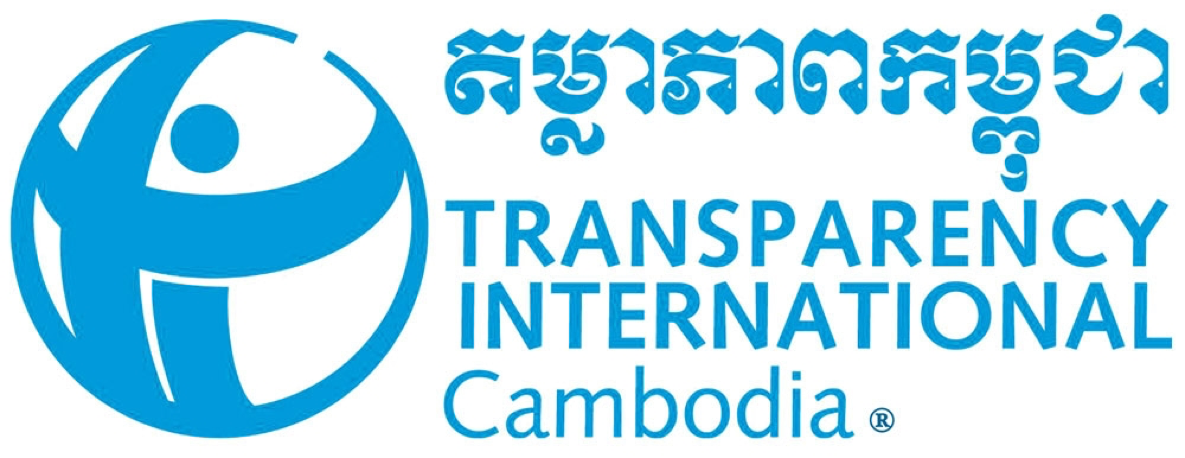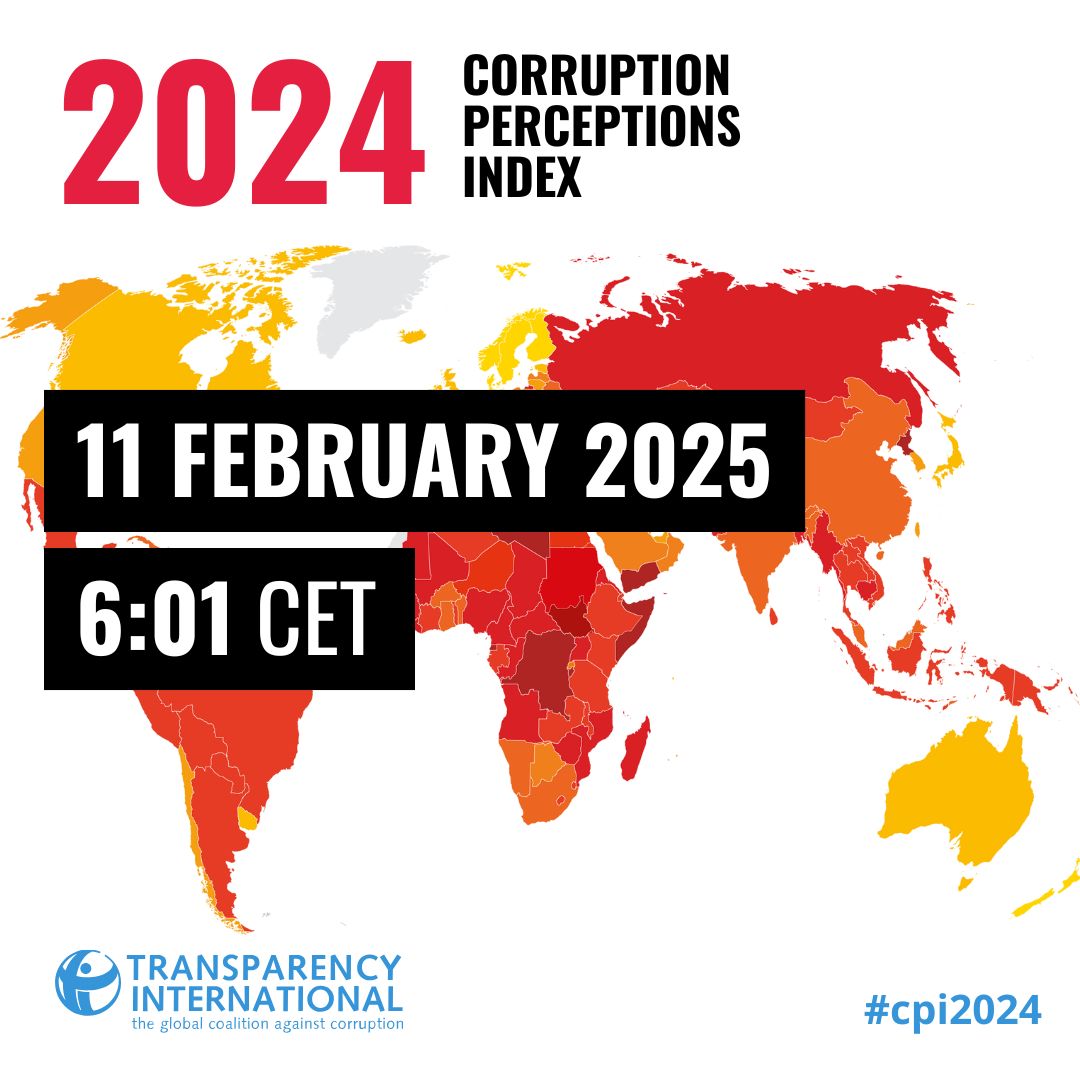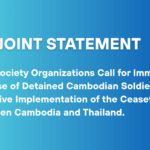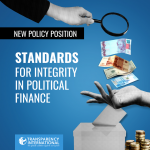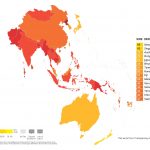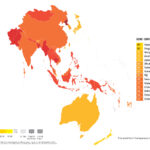CPI 2024 Press Release Cambodia
Phnom Penh, 11February 2025-The 2024 Corruption Perceptions Index (CPI), released today by Transparency International, reveals that Cambodia’s score has fallen to 21out of 100, marking a one-point decrease from 2023. This ranks Cambodia 158th out of 180 countries. This outcome underscores a concerning trend, as Cambodia’s CPI score has consistently remained in the low 20s over the last decade, with only occasional improvements.
The Corruption Perceptions Index (CPI) evaluates 180 countries and territories based on perceived public sector corruption, with scores ranging from zero (highly corrupt) to 100 (very clean). Cambodia’s 2024 CPI score remains significantly below both regional and global averages. In ASEAN, Cambodia ranks second-to-last, only ahead of Myanmar (16). Across the wider Asia Pacific region, Cambodia is ranked fourth from the bottom,surpassing only Afghanistan (17), Myanmar (16), and North Korea (15). The performance of other ASEAN countries varied: Vietnam’s score declined slightly (41to 40), as did Thailand’s (35 to 34),the Philippines’s (34 to 33), and Myanmar’s (20 to 16). On the other hand, Singapore (83 to 84L Indonesia (34 to 37),and Laos (31to 33) saw improvements in their scores. Malaysia (50) maintained its previous score.
Cambodia’s 2024 Corruption Perceptions Index score (21) reflects a continued struggle against corruption.An analysis of the seven key data sources behind the CPI reveals persistent weaknesses in governance, institutional integrity, and anti-corruption efforts. While some areas may show slight improvement, these gains are outweighed by declines in other key assessments, suggesting a need for more substantial reforms to strengthen political accountability and the rule of law. Ultimately,weak enforcement mechanisms and limited political will remain significant obstacles.
“Cambodia’s ongoing decline in the Corruption Perceptions Index underscores the urgent needfor robust enforcement of anti–corruption laws and a stronger commitment to tackling systemic and grand corruption/” said Pech Pisey, Executive Director of Transparency International Cambodia. “Although there have been improvements in areas like resource mobilization and local public services/ the general trend indicates the persistence of deep-rooted governance issues that require immediate attention.”
Global corruption levels remain alarmingly high, with efforts to reduce them faltering, according to the 2024 Corruption Perceptions Index (CPI), released today by Transparency International. The report has exposed serious corruption levels across the globe, with more than two-thirds of countries scoring below 50 out of 100. The global average on the index has remained unchanged at 43, highlighting the need for urgent action against corruption and warning of a critical global obstacle to implementing successful climate action.
Fran ois Valerian, Chair of Transparency International said: “Corruption is an evolving global threat that does far more than undermine development- it is a key cause of declining democracy, instability and human rights violations. The international community and every nation must make tackling corruption a top and long-term priority. This is crucial to pushing back against authoritarianism and securing a peaceful, free and sustainable world. The dangerous trends
revealed in this year’s Corruption Perception Index highlight the need to follow through with concrete action now to address global corruption.”
Tl Cambodia once again calls on the government to intensify and accelerate its efforts to combat corruption. This requires tangible actions in several key areas:
- Hold All Corruption Accountable: Ensure the swift prosecution of all corrupt activities, regardless of scale, with strong legal frameworks and effective enforcement. Make corruption a high-risk,low-reward endeavor.
- Strengthen Accountability and Oversight: Building a culture of accountability relies on protecting and fostering democratic freedoms,including freedom of expression, assembly, and association. It is crucial to protect the democratic system of checks and balances and to support oversight institutions. Public institutions such as anti-corruption agencies and audit bodies must be given the resources and independence to investigate and address corruption. An independent judiciary, free from political interference,is crucial in keeping executive power in check. Furthermore, transparent and fair elections must be upheld to ensure citizens can shape their future.
- Modernize Anti-Corruption Legislation: Update anti-corruption laws to align with international standards.Adopt whistleblower protection laws and establish a clear code of conduct for public officials.
- Enhance Transparency and Public Scrutiny: Adopt a robust Access to Information law.
Ensure transparency in government practices and the management of public resources.
- Ensure Fair Business Practices: Promote corporate transparency and fair competition.
Eliminate biases in public procurement processes and ensure consistent compliance standards for all businesses.
ABOUT THE CORRUPTION PERCEPTIONS INDEX
Since its inception in 1995, the Corruption Perceptions Index has become the leading global indicator of public sector corruption. The index scores 180 countries and territories around the world based on perceptions of public sector corruption, using data from 13 external sources, including the World Bank, World Economic Forum, private risk and consulting companies, think tanks and others. The scores reflect the views of experts and business people,not the public.
The process for calculating the CPI is regularly reviewed to make sure it is as robust and coherent as possible, most recently by the European Commission’s Joint Research Centre in 2017. The CPI scores from 2012 onwards can be reliably compared year by year. For more information, see this article: The ABCs of the CPI: How the Corruption Perceptions Index is calculated.
For further enquiries, please contact: Mr. Pech Pisey
Executive Director
Transparency International Cambodia
Signal: +855 89 972 620
 English
English